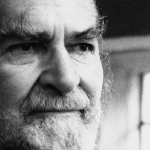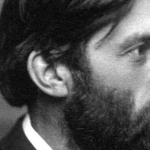Such a book must contain—
it always does!—a disclaimer.
I make no such. For here
I have collected all the best—
the lily from the field among them,
forget-me-nots and mint weed,
a rose for whoever expected it,
and a buttercup for the children
to make their noses yellow.
Here is clover for the lucky
to roll in, and milkweed to clatter,
a daisy for one judgment,
and a violet for when he loves you
or if he loves you not and why not.
Those who sniff and say no,
These are the wrong ones (and
there always are such people!)—
let them go elsewhere, and quickly!
For you and I, who have made it this far,
are made happy by occasions
requiring orchids, or queenly arrangements
and even a bird-of-paradise,
but happier still by the flowers of
circumstance, cattails of our youth,
field grass and bulrush. I have included
the devil’s paintbrush
but only as a peacock among barn fowl.













Comment form: